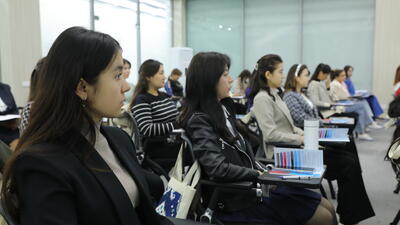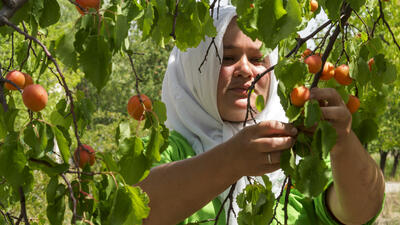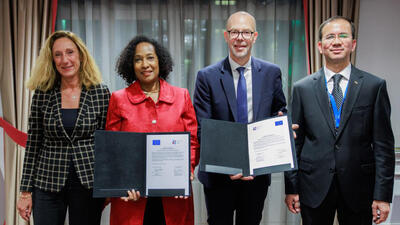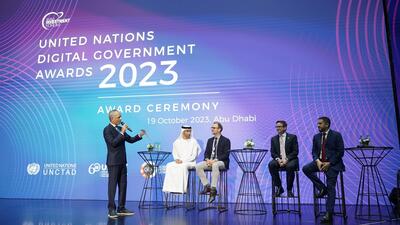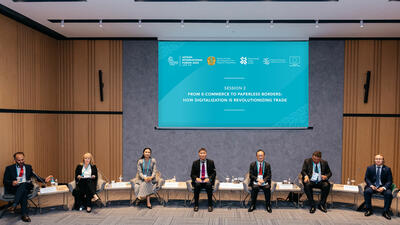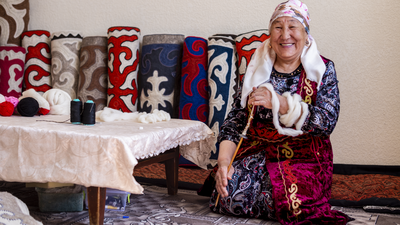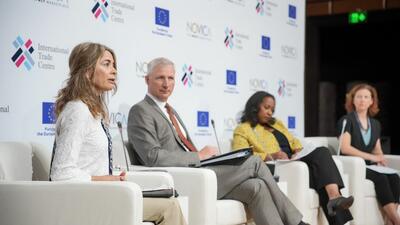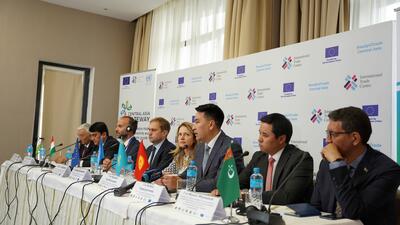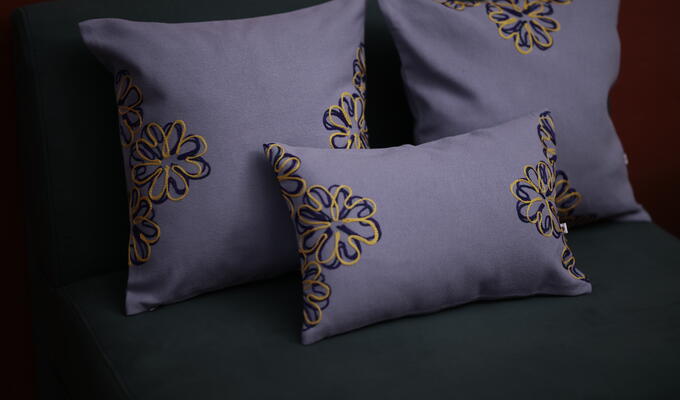
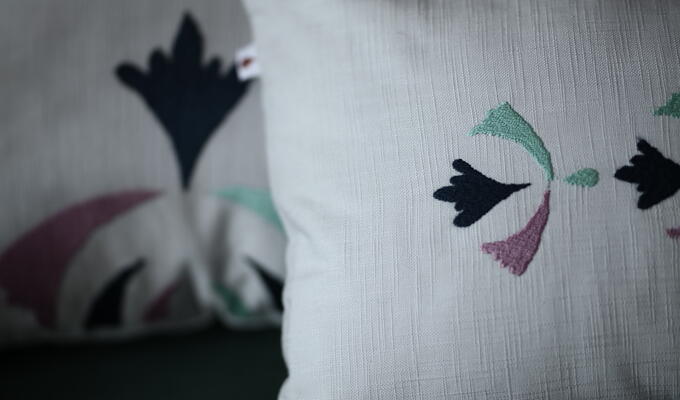
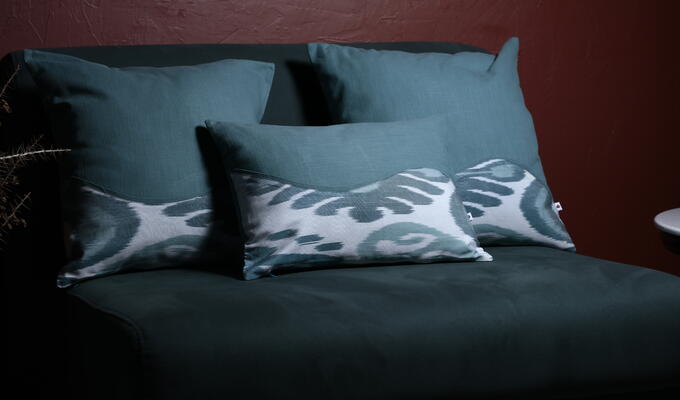

How creative goods go from Tajik villages to global cities
Centuries-old culture connects with modern lifestyle, using online platforms that link creators to shoppers around the world.
Women in remote Tajik villages make exquisite handmade carpets, silver jewellery and homewares. Many of their potential buyers live in distant cities around the world.
How to connect the creators with customers?
LA’AL Textiles brings together two dozen individual artists as well as clothing and textile factories. Promising an “incomparable feeling of exclusivity”, the brand works to improve the productivity and competitiveness of Tajik enterprises.
Founded and promoted by the United Nations Industrial Development Organization (UNIDO) project, the first-of-its-kind umbrella brand sells exclusive home textiles, handmade eco-carpets, as well as accessories made from leather and from Tajik national fabrics called Atlas and Adras.
“Our manufacturers have learned how to harmoniously integrate national motifs into everyday life under the LA’AL Textiles umbrella brand,” said Sarvinoz Junaydova, the UNIDO project national technical coordinator.
“The hallmark of the brand is the original combination of textures, geometric ornaments, the richness of colors, creative use of the ancient techniques of traditional embroidery in their modern interpretation, thanks to which the brand collections always follow fashion trends and international quality standards,” she said.
Those products now have easier access to international markets with support from the EU-funded Ready4Trade project to find their niche market online.
Global market for handmade accessories
With their new e-commerce presence, several Tajik companies and artisans have already found international customers online. Today, you can see colourful embroidered handmade totes and modern handmade leather clutches from Tajikistan worn in New York City and elsewhere.
That also means the women who made them have more financial independence and stability.
“The most important asset of Tajikistan is its human resources with young and powerful creative energy and their desire to develop and strengthen the country’s economy,” Junaydova said. “We continue to create new opportunities for career growth and development of sustainable business in the textile sector.”
Ready4Trade helped companies united under LA’AL Textiles to gain necessary knowledge and skills to start selling online, with extended marketing and promotion support. Their team received coaching to open an online store on eBay to showcase their unique products to international customers.
LA’AL Textiles was the first Tajik company to join the eBay Central Asia hub, a joint initiative of the Ready4Trade project and USAID’s Future Growth Initiative. The company has shipped products to Europe, and North and South America, using special rates through a partnership with DHL.
ITC is currently planning to coordinate with other marketplaces to create additional online stores within the project.
“Despite the challenges with the infrastructure in Tajikistan, we are thrilled to celebrate the success that our beneficiaries are making,” says Saidmumin Kamolov, the Ready4Trade national project manager in Tajikistan.
“Knowing the potential of the handicrafts and creative art industry in the country, we are focusing on supporting these businesses to go global through e-commerce. At the same time, we are working with the government of Tajikistan to improve the e-commerce infrastructure.”
About the projects
The Ready4Trade Central Asia project is a joint initiative of the European Union and the International Trade Centre. It aims to contribute to the overall sustainable and inclusive economic development of Central Asia by boosting intra-regional and international trade in the region. Beneficiaries of the Ready4Trade Central Asia project include governments, small and medium-sized enterprises, in particular women-led enterprises, and business support organizations.
Industrial modernization and competitiveness of carpet weaving, embroidery and textile sectors in Tajikistan
Responding to the 2014 request of the Ministry of Industry and New Technologies of the Republic of Tajikistan, UNIDO developed and successfully implemented a technical cooperation project entitled “Industrial modernization and competitiveness of carpet weaving, embroidery and textile sectors in Tajikistan”. The project (Phase I & II) provides technical support to 21 local SMEs to improve the technological cycle and spur industrial modernization, introducing innovative marketing tools, and strengthening national expertise on a sustainable basis, continuously generating employment with hundreds of jobs created. More than 500 experts, most of them women including those on the margins of society, strengthened their skills in the production and market access cycles through newly introduced training opportunities. As part of the unique joint brand “LA’AL Textiles” established in 2016, products of Tajik carpet weaving, embroidery, and textile enterprises were showcased at national and international exhibitions. A substantial number of commercial contracts were signed with leading domestic and international hotels, restaurants, international retail shops and other partners. “LA’AL Textiles” has been domestically recognized as Brand of the Year 2017 and 2019 for its contribution to sustainable industrial development, creation of new jobs and increased export capacity of Tajik products. Amidst the restrictions related to COVID-19 many exhibitions and B2B meetings were adapted to online format, which was followed by the creation of the official website and online business platforms on Instagram and Facebook making “LA’AL Textiles” products available for any customer worldwide. The project continues to support beneficiaries promoting alternative digital sales channels thereby giving them extensive opportunities to learn how to use innovative technologies in the era of digital transformation and ever-growing competitive pressures.






